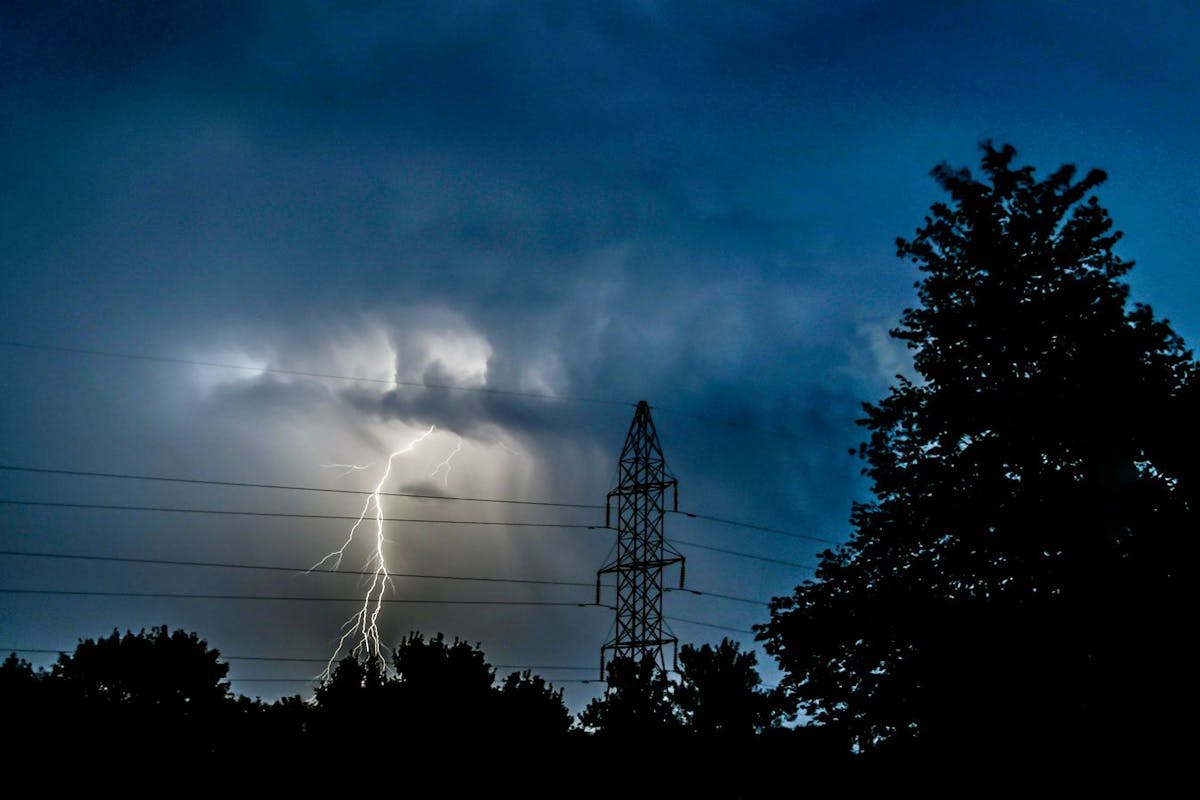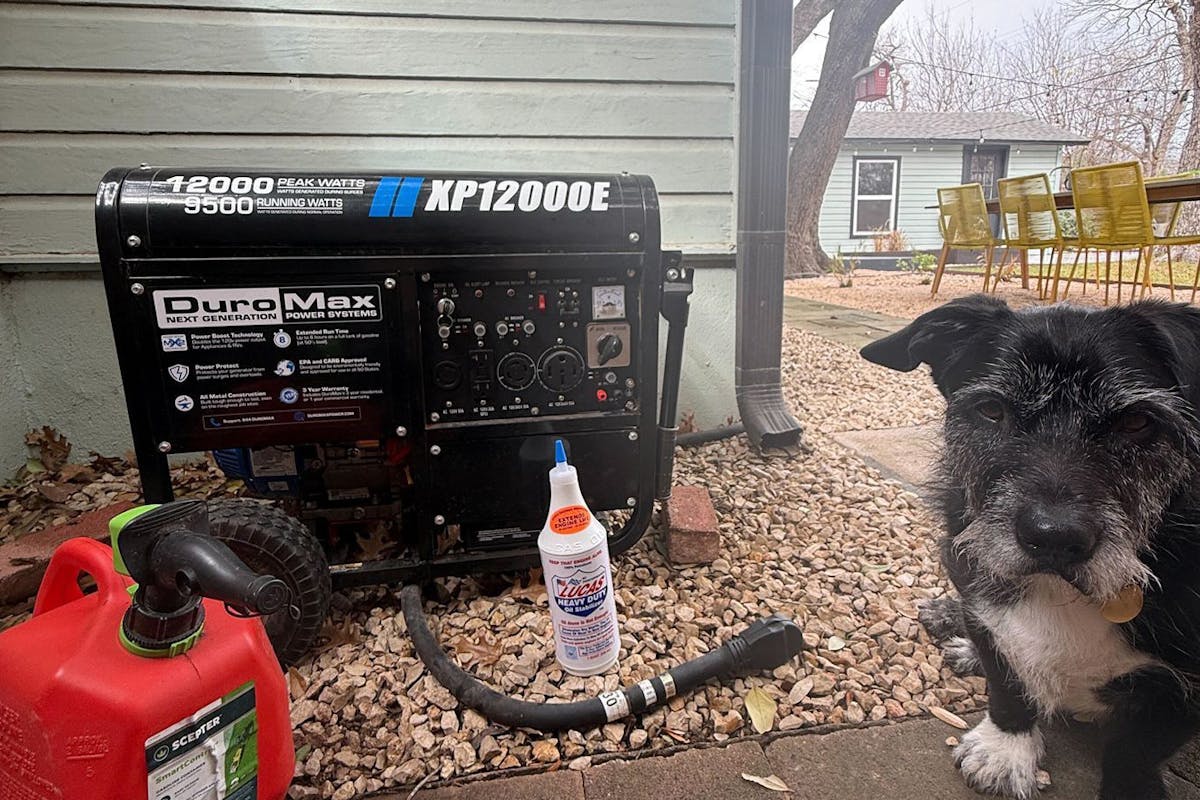Why Is My Energy Bill So High? What Can I Do?
Last edited
Author
Andrew Blok
Electrification and Solar Writer and Editor
Editor
Andrew Giermak
Solar and Electrification Writer and Editor

It’s impossible to avoid using electricity, gas, or both in a modern home. So when energy prices rise, like they did over the past year, it can feel like you don’t have any options. According to a 2025 study, nearly 75% of Americans are concerned about rising energy bills and 80% feel powerless to address them.
The good news is that there’s plenty you can do to address your energy bill, from small improvements like changing your light bulbs, air filters, and thermostat settings, to large changes like installing home solar panels.
Why is your energy bill so high? Here’s how you can cut into it.
See how much you can save with home energy changes
Why is my power bill so high?
There are many causes of a higher energy bill.
Changes in weather
Since so much of a home’s energy bill is tied to heating and cooling (52%, according to the Energy Information Administration), energy bills typically are highest in the summer and winter.
Check to see if your bill is up compared to a year ago. If it’s abnormally high, see if it’s warmer or colder than usual for your region. Your energy bill might have these comparisons listed.
Electricity is more expensive
Sometimes electricity just gets more expensive across the board. Sometimes it fluctuates with the time of day.
If you’re on a time-of-use rate, you may be able to shift electricity use away from peak hours, when electricity is more expensive, to off-peak times.
Average rates have increased across the United States, but not evenly, as data from the US Energy Information Administration shows.

Changes in usage
If more people are home for more hours of the day, it means more devices, more cooking, more showers, and so on. A few extra kilowatt-hours here and there could add up.
Holidays can increase your electricity usage. Here are a few ideas for saving energy during them.
Leaving devices on
Video game consoles, TVs, and other devices can use vampire power when they’re in standby. Unplugging them can save you energy.
Power strips, smart plugs, and home energy monitors can also help cut down on vampire energy with the flip of a switch or — even better — an automatic schedule.
Hot water usage
Water heating accounts for another 18% of average home energy use, according to the US EIA. Water heaters are often set to 140 degrees by default, but can be lowered to 120 degrees without affecting performance. For every 10 degrees you drop the water heater, you can save 3-5% on the energy cost of the water heater. Insulating water pipes and using a water heater insulation blanket usually saves energy and money.
An energy efficient electric water heater, like a tankless or heat pump water heater, is another potential energy efficient improvement.
Washing your laundry with cold water can save energy. Running full loads and cleaning the lint trap in your dryer can also save you energy.
Old, inefficient appliances
Older appliances can be energy hogs, and get worse with age. For example, a refrigerator from 20 years ago uses 35% more energy than a current Energy-Star certified refrigerator.
New electric appliances and EVs
If you toss an old gas stove for a new electric stove, your gas bill will drop, but electric bill will tick up, even if you’re able to save money overall.
If you’ve just bought an electric vehicle for the first time, congrats! One expected trade-off is you’ll use more electricity. Your electric bill might go up, even if your overall cost of owning a vehicle goes down. Learning how to cost effectively charge your EV and what EV charger is the best fit for you can reduce your costs.
Poor insulation and a leaky house
The US Department of Energy estimates 9 of 10 homes in the US are under-insulated. With the right level of insulation, homeowners would save about 11% on their total electric bill. Insulation stops air leaks, keeping in heat in the winter and cool in the summer.
You can do your own energy audit, or hire a pro to check whether the insulation in your attic, basement and crawl space is up to snuff. Installing the right insulation also protects a home from humidity, pollen, and dust.
See how much you can save with home energy changes
How can I save on my energy bill?
Here's what you can do, from easy steps up to installing home solar panels.
Energy audit
An energy audit, or home energy assessment, checks a home’s energy efficiency. You can do it yourself, but a professional may give you a more thorough assessment.
An energy audit will include checking for air leaks, inefficient appliances, inadequate insulation levels, and more.
Here are the components of a full energy audit.
- Insulation check: The auditor will examine the insulation levels in the walls, basements, and attics.
- Blower door test: This test measures air leaks and drafts in the home and identifies areas that need air sealing.
- Thermographic scanning: This scan effectively identifies whether heat is lost through the walls, doors, or windows.
- HVAC system: This involves inspecting the efficiency of the heating and cooling systems, including the ductwork.
- Lighting evaluation: Checking light fixtures and the types of bulbs to ensure you are using the most energy efficient light bulbs available.
- Appliances check: Ensuring appliances are working correctly and everything meets energy efficiency standards.
- Utility bill review: The auditor can review your utility bills to identify patterns that indicate unusually high energy usage.
Smart thermostats and other smart devices
Smart devices, like smart thermostats and smart electrical panels, can make your home more efficient. Some thermostats can learn your habits to heat and cool your home efficiently and comfortably. They can also be controlled remotely or scheduled. A smart electrical panel has additional smart capabilities to give you better control over your electricity use and improve you home's safety.
Smart plugs
Smart plugs allow you to turn devices on or off with an app, set them to an energy-saving schedule, and monitor their electricity usage to identify and cut down on vampire energy.
Adjust your thermostat and use a ceiling fan
Use ceiling fans to feel cooler or warmer. Ceiling fans don’t actually change the temperature inside, they simply make it feel cooler or warmer by up to four degrees.
In the cooler months, you can reverse the fan and circulate warmer air near the ceiling throughout the room so it feels warmer where you are. But, leaving a fan on when no one is in the room to feel its effects is a waste of energy.
Adjusting your thermostat so your heat pump or air conditioner doesn’t work as hard can save energy, too.
Improve your insulation
Adding or installing new insulation can cut your energy bill and improve the comfort and health inside your house.

Adapted from Department of Energy
Change your HVAC filters
Energy efficiency is one overlooked reason to remember to change the air filters in your HVAC system every 1-3 months.
A clogged filter makes the whole HVAC system work harder and use more energy. The easier air circulates through vents, ducts, and a whole home, the more efficient an HVAC system runs.
The more your system runs, the more frequently you’ll need to change your filters.
Energy-efficient appliances, devices
When looking at new appliances, look for Energy Star-certified ones and read Energy Guide labels.
Energy Star certification means a product meets efficiency standards set by the US Environmental Protection Agency. Energy Guide, a yellow label on an appliance, gives estimated annual energy cost.
Water heaters, HVAC systems, heat pumps, EV chargers, dishwashers, washers and dryers, refrigerators and freezers, TVs, and thermostats are some of the appliances with Energy Star lists. Some Energy Star, electrical, and/or smart appliances may qualify for tax credits or rebates.
Change your light bulbs
Energy Star-certified LED bulbs use about 90% less energy than older incandescent bulbs so each bulb can save about $55 in electricity in its lifespan, which is about 15 times longer than a standard bulb. An LED bulb also puts out about 70-90% less heat, so using LED bulbs in more places can make a small difference in how much your AC runs.
According to the EPA, if every home in the US replaced one standard light bulb with an LED, Energy Star bulb, it would collectively save more than $570 million in power costs.
Switch your retail energy plan
If you live in an area where you can choose your electricity provider, see if switching could save you. Some plans won’t save you money, so be careful to read the fine print.
Palmetto’s retail energy plans, designed for homeowners with solar panels or battery storage, are available in energy choice regions of Texas.
Install solar panels
With solar power for your home, you can buy less electricity from your utility. You can reduce your electric bills, increase your energy independence, and help the environment. With the expertise of Palmetto’s team, you can maximize the savings from a new system.
If you’re interested in learning more about home solar power and seeing if a journey toward cleaner, less expensive energy is right for you, you can get an estimate with our solar savings tool.
Adjust your habits
Shifting energy use to off-peak hours can save you money if you have a time-of-use rate from your utility. Appliances you can schedule make it easier.
Battery storage (paired with solar) can be a good fit for time-of-use rate. Peak rates are most often in the late afternoon and evening, when people tend to get home and use the most electricity and solar production fades. If you have a battery, you can store solar energy and use it instead of the utility company’s peak-rate energy.
Remembering to turn off lights and devices is an easy way to cut back on electricity, too.
The Palmetto App makes tracking your energy habits fun and easy with simple weekly challenges that earn you real rewards. It makes saving energy (and reducing your bill!) feel like a game.
To learn more about how you could save with energy improvements around your home, check out Palmetto’s Savings Maximizer.
See what home electrification can do for you:
Frequently asked questions
How can I easily lower my electricity bill?
Some easy ways to cut your electric bill include checking your home’s insulation, making sure your HVAC filters are clean, shifting when you use power (on a time-of-use rate), lowering the temperature of your water heater, and swapping in new efficient light bulbs.
Will solar panels eliminate my electricity bill?
Solar panels often do not fully eliminate your electricity bill. Even when solar takes your electric bill to zero, you’ll receive a bill saying so, and you still may have other fees or charges. Policies vary, so be sure to check with your utility and solar advisor.
What are the biggest uses of energy in a house?
A home’s heating and cooling is, by a large margin, the largest user of energy. Heating and cooling is about 52% of a US home’s total energy consumption on average. From there, the list includes your water heater, lighting, refrigerator/freezer, washing machine, and dryer.



